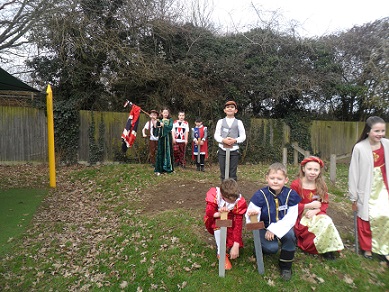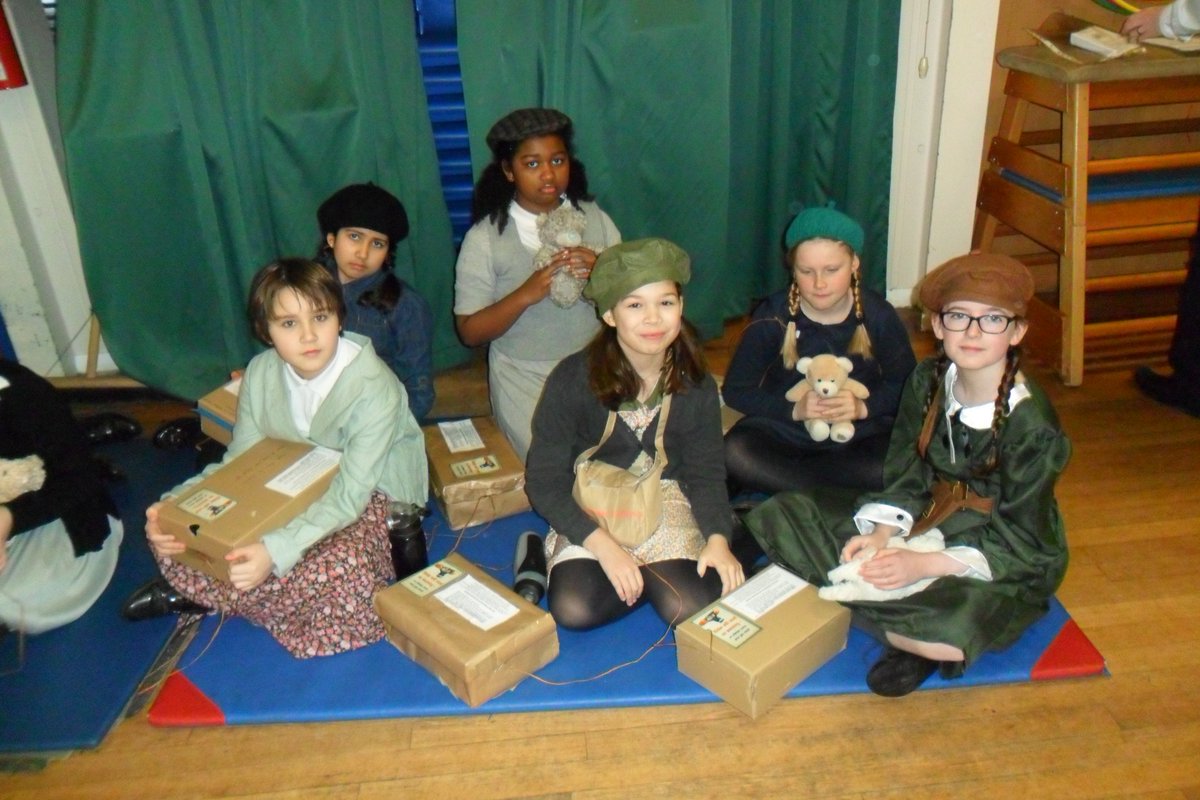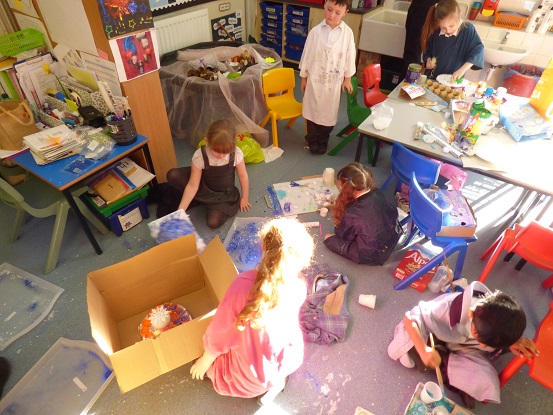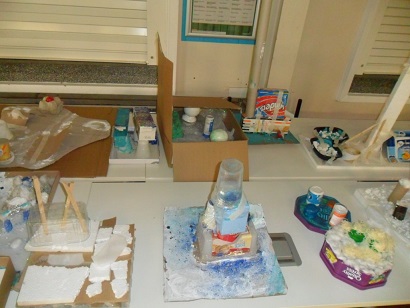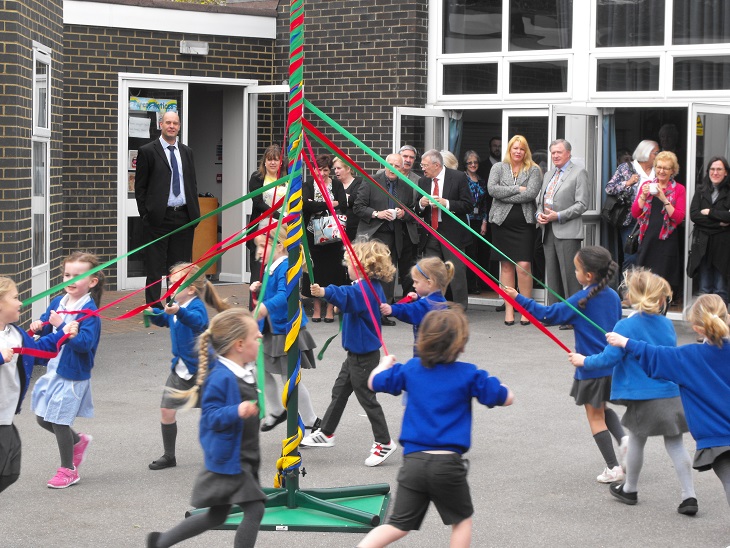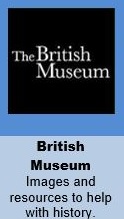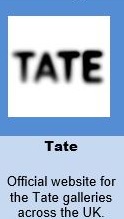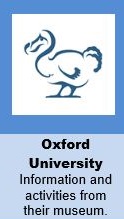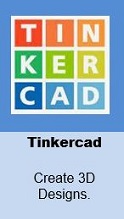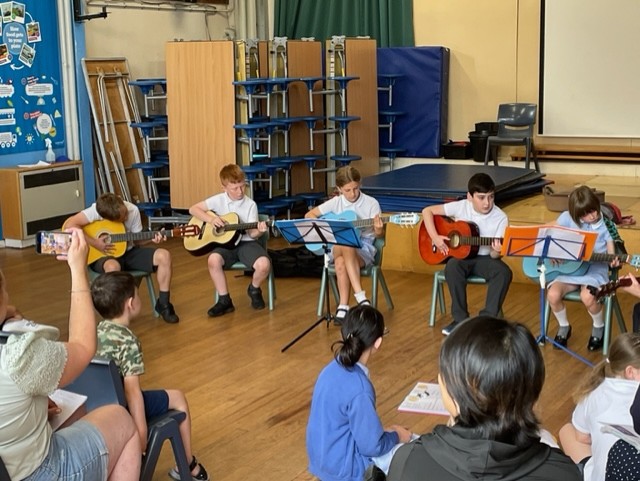At Long Lane we believe that every child has the potential to excel in all subjects, with creativity, curiosity and flair. We ensure that our curriculum provides challenge and support in equal measure and is inclusive of all types of learners, therefore providing a variety of learning approaches and styles. Staff understand the different strengths of pupils and plan motivating tasks and experiences with this in mind using scaffold and challenge where appropriate. This is especially important in the Foundation Subjects as this is where we can spot and nurture talent, encouraging children to realise their dreams and hobbies of the future.
Music
Through the teaching of Music to all pupils we aim to encourage children to develop a love of music, introduce them to a range of musical pieces and provide opportunities for children to learn an instrument. All children learn to create, explore, perform and enjoy music, allowing them to develop the skills they need to become musicians as well as having the experiences of hearing and appreciating a range of musical genres and cultures.We teach the curriculum use the online Music Scheme Charanga, supported by Maestros, the Berkshire Music Service. This is supplemented by outside music providers.
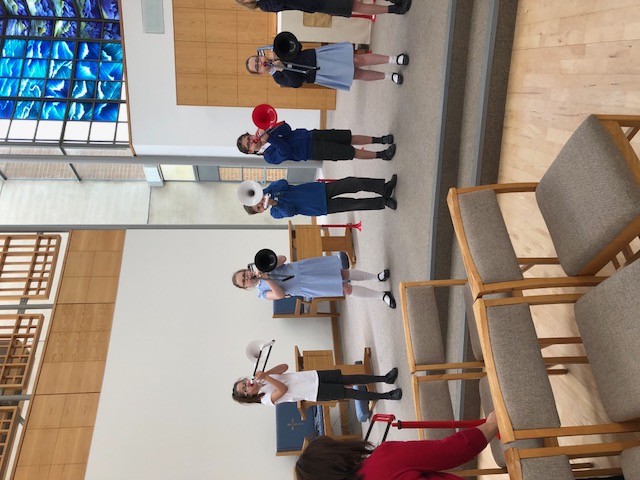
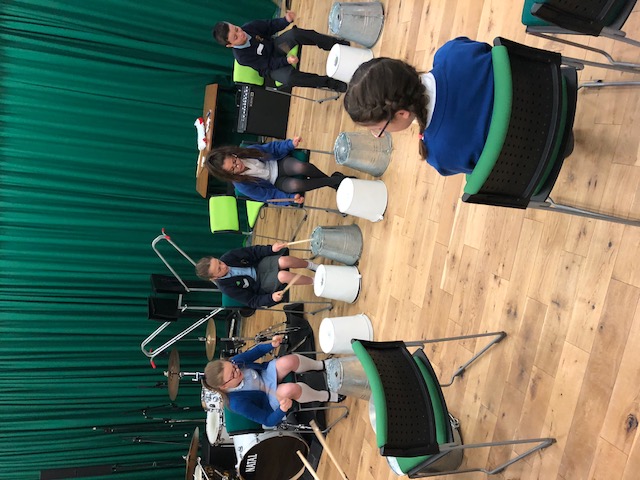
MUSIC
‘Where words fail, music speaks.’
Hans Christian Anderson, author.
Local Context:
Long Lane Primary is a Community School, built in 1966 and maintained by West Berkshire Council. We work closely with the Berkshire Music Trust and local established professional music teachers to provide musical opportunities and build long lasting networks for music. Our local area is close to Reading, allowing opportunities to engage in local musical activities and trips, building cultural capital for our children.
(Please see Curriculum Policy.docx for details of Cultural Capital at Long Lane)
Intent
Our aim at Long Lane is to deliver high-quality music education, following the specifications of the National Curriculum; an education that engages and inspires pupils to develop a ‘love of music’ and their talent and aspirations as musicians, and so increase their self-confidence, resilience, creativity and sense of achievement.
The aims of our Music curriculum are to develop children who:
- Enjoy, be curious and have an appreciation for, music.
- Listen to, review and evaluate music across a diverse range of historical periods, genres, cultures, styles and traditions.
- Can sing and use their voices to create different effects.
- Create, explore and compose music, both independently and with others.
- Use a range of musical language.
- Make judgements and express personal preferences about the quality and style of music.
- Take part in performances with an awareness of audience and develop a sense of community.
Implementation
At Long Lane we take an integrated, practical, exploratory and child-led approach to musical learning.
Early Years – Through the early years children are encouraged to explore sounds in the environment and instruments and their sound. Activities are planned into play experiences and developed through playing together and composing freely through exploration.
Primarily using Charanga (three units per year), the interrelated dimensions of music weave through the units of the spiral learning curriculum to encourage the development of musical skills as the learning progresses through listening and appraising, differing musical activities (including creating and exploring) and performing.
Each Charanga Unit of Work is structured to include:
1. Listen and Appraise
2. Musical Activities (including Games, Singing, Playing, Improvising and Composing)
3. Perform/Share
This enables children to understand musical concepts through a repetition-based approach to learning, with opportunities to embed deeper learning, knowledge, understanding and skills. The final unit in each year - Reflect, Rewind and Replay - allows for revision and more extension activities. Instrumental work is differentiated allowing children to move through the relevant parts as they need to.
(Please see Teaching for Learning Policy 2023.docx for details of Learning Behaviours, Inclusion and Rosenshine Principles at Long Lane)
Impact
Our approach to Music at Long Lane Primary School means that:
- Learning about the same musical concept through different musical activities enables a more secure, deeper learning and mastery of musical skills.
- Over time, children can both develop new musical skills and concepts, and re-visit established musical skills and concepts.
- Children develop both a deeper understanding of musical skills and concepts and are learning something new (mastery).
Pupil Assessment and Attainment
The Musical School Assessment Framework on Charanga uses a Plan-Do-Check-Review approach and is supported by planning and assessment documentation, with the facility to upload and store digital evidence.
Teachers use Assessment for Learning strategies to ensure that children understand what they are being taught within a context and ‘know more and remember more’ of the key knowledge and skills outlined in each objective. These will include; mini quizzes, questioning, discussions and observations (including video and photography), peer assessment and appreciation, Think Pair Share. Teacher assessment occurs throughout teaching and learning with support implemented where appropriate. (see Teaching for Learning Policy linked below)
EYFS pupils' progress and attainment is assessed by the FS class teacher in the context of the EYFS framework and ELGs.
Monitoring and School Improvement Planning
The Music Lead, the Head Teacher, with support from the Governors regularly review and quality assure Music across the school to ensure that it is implemented sufficiently well in line with the National Curriculum Objectives and aligns with the Vision and Values of the school.
Impact is measured through monitoring activities, including; learning walks, questionnaires to staff, pupil voice, looking at evidence of pupil’s work, teacher assessments and any other relevant evidence. In addition, they evaluate the impact and plans for future development of the subject for pupils and staff, utilising action plans, looking to develop new opportunities, refine current practice, plan CPD for staff and feed into the School Improvement Plan (where appropriate) from where Performance Management and school priorities stem.
Linked Policies – This policy sits under the following two umbrella policies;
Teaching for Learning Policy 2023.docx
Art
At Long Lane Primary School we want to inspire, engage and challenge pupils by equipping them with the knowledge and skills to experiment and create their own art work. As pupils progress through the school they will develop a deeper understanding of art and design, exploring the impact it has on the contemporary life and that of different times and cultures.
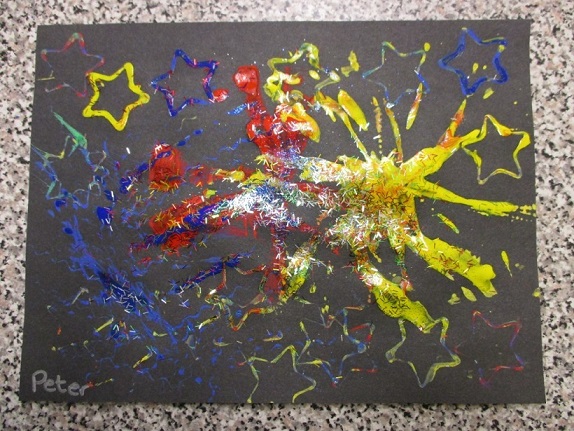
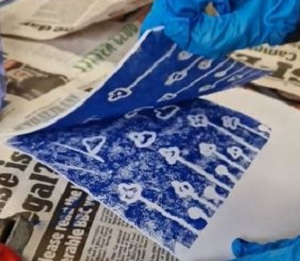
'Creativity requires the courage to let go of certainties'
Erich Fromm
Local context
Long Lane Primary is a Community Primary School, built in 1966 and maintained by West Berkshire Council. There are links with Pangbourne College, with opportunities for KS2 children to visit for a ‘DT day.’ In the local area there are links to the great engineer, Isambard Kingdom Brunel with the Great Western Railway and the Tilehurst Road Bridge.
Intent
At Long Lane the art and design curriculum aims to engage, inspire and challenge pupils, equipping them with the knowledge and skills to experiment, invent and create their own works of art and design, developing their own independent style, using a rich imagination. We want pupils to use curiosity to develop critical thinking, and a better understanding of art and design, especially how artists thought processes and experiences have influenced their work. They will know how art and design has shaped our history, culture and nation and form individual ideas about how they can have a place in art and its representation. We believe that learning to effectively critique their own and the work of others. This supports building resilience and shaping ideas around their environment and make a true contribution to community. Children are encouraged to make improvements towards a final piece (with purpose) and reflect on this.
Implementation
At Long Lane Primary School, this element of the curriculum is taught using The National Curriculum. When appropriate, art and design lessons are taught as part of a half-termly theme of work, which links with other areas of curriculum: history, geography and design and technology etc. We recognise that sometimes art and design is best taught in discrete lessons so that the knowledge, skills and understanding of art and design can be taught effectively. Pupils will have opportunities to use a variety of resources and use our outdoor environment to inspire their work. Art and design has a progression map setting out the knowledge, skills, understanding, vocabulary and cultural capital opportunities for each year group. The progression map shows a coherent progression in expectations, all meeting the national curriculum programme of study for art and design. The Curriculum Overview for art and design sets out how the curriculum will be met throughout the school. This shows a cohesive and bespoke interpretation of the curriculum. Sculpture, painting and drawing are taught through a range of great artists and artwork, creating a familiar and progressively more challenging curriculum each year, culminating in year 6, with pupils expected to draw their knowledge, skills and understanding together to create artwork that carries a message.
- A broad and balanced art and design curriculum that is inspiring and engaging
- A clear path to enable them to see their progress across a range of art and design forms
- An art and design curriculum that compliments other areas of the curriculum, whilst addressing the necessary knowledge and skills of the National Curriculum
- The opportunity to be creative and expressive through their work
- To ensure pupils learn about artists and designers that have influenced history and culture in Britain and abroad.
Early Years Foundation Stage
During the EYFS, pupils explore and use a variety of media and materials through a combination of child initiated and adult led activities. They will have the opportunities to learn to:
- Use different media and materials to express their own ideas
- Make plans and create with a purpose in mind using a variety of resources, adapting their work where necessary
- Develop skills to use simple drawing tools and techniques appropriately, effectively and safely
- Appreciate artists work, picking out colours, feelings, textures
(Please see Teaching for Learning Policy 2023.docx for details of Learning Behaviours, inclusion and Rosenshine Principles at Long Lane)
Impact
The impact of the art and design curriculum at Long Lane Primary is that we ensure that our children progress to secondary school with the confidence to express their creativity in the subject. They have a good understanding of art and design and its impact on culture and history. They know about artists and designers and how they have influenced the world and country. They are confident that they have the skills to attempt all elements of art and design.
- Use what they have learnt about media and materials in original ways, thinking about form, creativity and purpose
- Compose and experiment to form a piece, taking inspiration from a range of artists
- Choose and use a range of materials, considering which is best for their intended purpose or idea
- Develop skills to use simple tools and techniques appropriately, effectively and with individuality
- Evaluate and adapt their work, critiquing own and others work where appropriate
- Express views and ideas about a range of culturally diverse artists from different times and places, considering time in history and experience.
Pupil assessment and attainment
Pupil’s skills and knowledge are assessed by the class teacher and Art and Design coordinator through observation, work scrutiny, thoughtful questioning and pupil voice. Summative assessment will be through mini-quizzes and end of project assessment against success criteria.
Teachers use Assessment for Learning strategies to ensure that children understand what they are being taught within a context and ‘know more and remember more’ of the key knowledge and skills outlined in each objective. These will include; mini quizzes, questioning, discussions and observations (including video and photography), peer assessment and appreciation, Think Pair Share, book looks and comparisons. Teacher assessment occurs throughout teaching and learning with support implemented where appropriate. (see Teaching for Learning Policy linked below)
EYFS pupils' progress and attainment is assessed by the FS class teacher in the context of the EYFS framework and ELGs.
Monitoring and School Improvement Planning
The Art and Design Lead, the Headteacher, with support from the Governors regularly review and quality assure Art across the school to ensure that it is implemented sufficiently well in line with the National Curriculum Objectives and aligns with the Vision and Values of the school.
Impact is measured through monitoring activities, including; learning walks, questionnaires to staff, pupil voice, looking at evidence of pupil’s work, teacher’s assessments and any other relevant evidence. In addition, they evaluate the impact and plans for future development of the subject for pupils and staff, utilising action plans, looking to develop new opportunities, refine current practice, plan CPD for staff and feed into the School Improvement Plan (where appropriate) from where Performance Management and school priorities stem.
Design and Technology
At Long Lane Primary School we recognise the importance of the creative process from start to finish with equal emphasis given to design,making and evaluating. The children use sketch books during the planning stage, and learn to use tools and a variety of materials as well as looking at the work of designers.
Design and Technology
“Some of the best inventive moments are born out of 'wrong thinking'. The wrong way will lead to mistakes from which you can learn and create new discoveries-the kind of original ideas that come to life when we dare to be different, keep an open mind, and have no fear of failure.”
James Dyson
Local context
Long Lane Primary is a Community Primary School, built in 1966 and maintained by West Berkshire Council. There are links with Pangbourne College, with opportunities for KS2 children to visit for a ‘DT day.’ In the local area there are links to the great engineer, Isambard Kingdom Brunel with the Great Western Railway and the Tilehurst Road Bridge.
Intent
At Long Lane Primary School we aim to equip children for independence and intend to build a Design Technology curriculum which inspires creative, critical thinking, enabling children to develop the skills needed to carry out practical tasks and to problem-solve with confidence and curiosity. Our aim is for children to be able to design products for a range of users and to critically evaluate their projects against success criteria. As part of the DT curriculum, we also aim for children to develop an understanding of nutrition and to learn basic skills in food preparation and cooking to serve themselves and their community.
We intend for all children to acquire appropriate subject knowledge, skills and understanding as set out in the National Curriculum.
(Please see Curriculum Policy.docx for details of Cultural Capital at Long Lane)
Implementation
At Long Lane, our implementation of the DT curriculum will be through:
- A well thought out, whole school, yearly overview of the curriculum which plans for progression across year groups in all areas of DT (textiles, mechanisms, structures, food and electrical systems)
- Well planned and resourced projects providing children with a hands-on and enriching experience
- A range of skills being taught, ensuring that children are aware of the health and safety issues relating to the tasks undertaken
- Teachers being given ownership of planning, and the flexibility to teach units of DT in such a way as to maximise the opportunity for children to be immersed, inventive and reflective in their work.
Each project from Year 1 to Year 6 will address the principles of designing, making, and evaluating whilst incorporating relevant technical knowledge and understanding in specified contexts. Key concepts will be taught in each Key Stage.
Children will be introduced to specific designers, chefs, nutritionists, etc. helping to engender an appreciation of human creativity and achievement and increase the cultural capital from which they can draw in the future.
It is our aim to create strong cross curricular links with other subjects, such as Mathematics, Science, Computing, and Art. We want Design and Technology to prepare our children, to give them the opportunities, responsibilities, and experiences they need to be successful in later life.
Early Years Foundation Stage
During the EYFS, pupils explore and use a variety of media and materials through a combination of child initiated and adult led activities. They will have the opportunities to learn to:
- Use different media and materials to express their own ideas
- Make plans and construct with a purpose in mind using a variety of resources, adapting their work where necessary
- Develop skills to use simple tools and techniques appropriately, effectively and safely
- Cook and prepare food adhering to good health and hygiene routines
(Please see Teaching for Learning Policy 2023.docx for details of Learning Behaviours, inclusion and Rosenshine Principles at Long Lane)
Impact
Through their engagement with our DT curriculum, children will be able to:
- Use what they have learnt about media and materials in original ways, thinking about form, function and purpose
- Design and plan a project, taking inspiration from a range of designers
- Choose and use a range of materials, considering which is best for their intended purpose
- Develop skills to use simple tools and techniques appropriately, effectively and safely
- Evaluate and adapt their work where necessary
- Cook and prepare food adhering to good health and hygiene routines
This creative thinking and resulting skills and learning behaviours will be applied to other areas of the curriculum, enabling confident, independent problem solving.
Pupil assessment and attainment
Pupil’s skills and knowledge are assessed by the class teacher and DT coordinator through observation, work scrutiny, thoughtful questioning and pupil voice. Summative assessment will be through mini-quizzes and end of project assessment against success criteria.
Teachers use Assessment for Learning strategies to ensure that children understand what they are being taught within a context and ‘know more and remember more’ of the key knowledge and skills outlined in each objective. These will include; mini quizzes, questioning, discussions and observations (including video and photography), peer assessment and appreciation, Think Pair Share, book looks and comparisons. Teacher assessment occurs throughout teaching and learning with support implemented where appropriate. (see Teaching for Learning Policy linked below)
EYFS pupils' progress and attainment is assessed by the FS class teacher in the context of the EYFS framework and ELGs.
Monitoring and School Improvement Planning
The DT Lead, the Headteacher, with support from the Governors regularly review and quality assure DT across the school to ensure that it is implemented sufficiently well in line with the National Curriculum Objectives and aligns with the Vision and Values of the school.
Impact is measured through monitoring activities, including; learning walks, questionnaires to staff, pupil voice, looking at evidence of pupil’s work, teacher’s assessments and any other relevant evidence. In addition, they evaluate the impact and plans for future development of the subject for pupils and staff, utilising action plans, looking to develop new opportunities, refine current practice, plan CPD for staff and feed into the School Improvement Plan (where appropriate) from where Performance Management and school priorities stem.
Linked Policies – This policy sits under the following two umbrella policies;
Teaching for Learning Policy 2023.docx

Geography
‘Geography underpins a lifelong ‘conversation’ about the earth as the home of humankind.’
-Geography Association
Local Context:
Long Lane Primary is a Community School, built in 1966 and maintained by West Berkshire Council. It is situated on the outskirts of Reading, in close proximity to the rural village of Purley on Thames. It is bounded by the north by a stretch of the River Thames, to the east by the Borough of Reading, to the west by Pangbourne and the south by Tilehurst and Sulham. We frequently take local walks to Sulham and Pikeshaw Woods and take advantage of the local landmarks around the surrounding area. Within their local context, we provide opportunities and encourage our pupils to get involved in initiatives to preserve, respect and sustain their environment.
(Please see Curriculum Policy.docx for details of Cultural Capital at Long Lane)
Intent
At Long Lane Primary School, we believe that children should be inspired by the world around them and have opportunities that allow them to foster a growing curiosity about the world and its many cultures. Our aim is to equip pupils with a deep understanding of the Earth’s key physical and human processes, and knowledge about our diverse world, focusing on places, people, resources and environments. Our intent is to deliver a high-quality geography curriculum that is underpinned by practical experiences such as fieldwork and educational visits that provide opportunities for pupils to investigate the geography of our local area (Thames Valley, Reading, Tilehurst), whilst highlighting cross-curricular links. We endeavour for pupils to gain a sense of personal pride in their local community and wider world through the values of sustainability, citizenship and cultural capital. By the end of a pupil's journey at Long Lane, we believe these fundamental skills will allow the children to gain knowledge that will allow them to develop into successful members of society with aspirational views on how to sustain and preserve the land around them, whilst advocating for those in places who can’t.
Implementation
Early Years - We believe that the first step to becoming a Geographer starts in The Early Years. The Early Years Statutory Framework (EYFS) aims to guide children to make sense of their physical world and their community by allowing them to explore, observe and find out about people, places, technology and the environment. Staff use this framework to plan topics that ensure that our pupils in Early Years are given opportunities to observe and ask questions about their immediate environment, whilst also taking account of pupil interests. Our Foundation Stage themes are linked to our school reading spine where rich texts are carefully selected which spark questions and curiosity about cultures, people and the wider world.
Across KS1 and KS2, the Geography curriculum is meticulously planned to deliver the criteria of the National Curriculum, embedding: Locational Knowledge, Human and Physical Geography and Geographical Skills and Fieldwork. Our enriching curriculum is delivered through ensuring Geography lessons are interactive, thought-provoking and active. As the children progress through the school, we aim to build on their knowledge and understanding through quality first teaching and cross-curricular links. This is achieved through providing the children with immersive experiences, including:
- Using the local environment for fieldwork and exploration.
- Orienteering on school grounds and in the local environment
- Fieldwork
- Access and knowledge of using atlases
- Globes/World Maps in every classroom
- School visits to places aligned with their geographic content
- Creative activities: video making, using the internet for research (DigiMaps, Google Earth, Maps)
- Role play and drama
- Real photographs
Through these strategies, subject knowledge is deepened whilst work is differentiated to allow all pupils to be successful learners.
(Please see Teaching for Learning Policy 2023.docx for details of Learning Behaviours, inclusion and Rosenshine Principles at Long Lane)
Impact
Through the multitude of diverse learning experiences, quality first teaching and enquiry-based learning, we believe that pupils will develop a strong understanding of geographical skills which will equip them for life. High-quality first teaching and practical learning opportunities allow pupils to become curious, knowledgeable and independent geographers equipped with lifelong skills essential for our everchanging diverse world. By the end of KS2, all pupils would have had exposure to a balanced and progressive Geography Curriculum, mastering their knowledge in: human and physical geography, place knowledge and geographical skills and fieldwork. Pupils would have developed an in-depth knowledge of countries and cultures across the world with a balance of spiritual, moral, cultural and social aspects to prepare them for life beyond Long Lane.
Pupil assessment and attainment
Teachers use Assessment for Learning strategies to ensure that children understand what they are being taught within a context and ‘know more and remember more’ of the key knowledge and skills outlined in each objective. These will include; mini quizzes, questioning, discussions and observations (including video and photography), peer assessment and appreciation, Think Pair Share, book looks and comparisons. Teacher assessment occurs throughout teaching and learning with support implemented where appropriate. (see Teaching for Learning Policy linked below)
EYFS pupils' progress and attainment is assessed by the FS class teacher in the context of the EYFS framework and ELGs.
Monitoring and School Improvement Planning
The Geography Lead, the Headteacher, with support from the Governors regularly review and quality assure Geography across the school to ensure that it is implemented sufficiently well in line with the National Curriculum Objectives and aligns with the Vision and Values of the school.
Impact is measured through monitoring activities, including; learning walks, questionnaires to staff, pupil voice, looking at evidence of pupil’s work, teacher’s assessments and any other relevant evidence. In addition, they evaluate the impact and plans for future development of the subject for pupils and staff, utilising action plans, looking to develop new opportunities, refine current practice, plan CPD for staff and feed into the School Improvement Plan (where appropriate) from where Performance Management and school priorities stem.
Linked Policies – This policy sits under the following two umbrella policies;
Teaching for Learning Policy 2023.docx
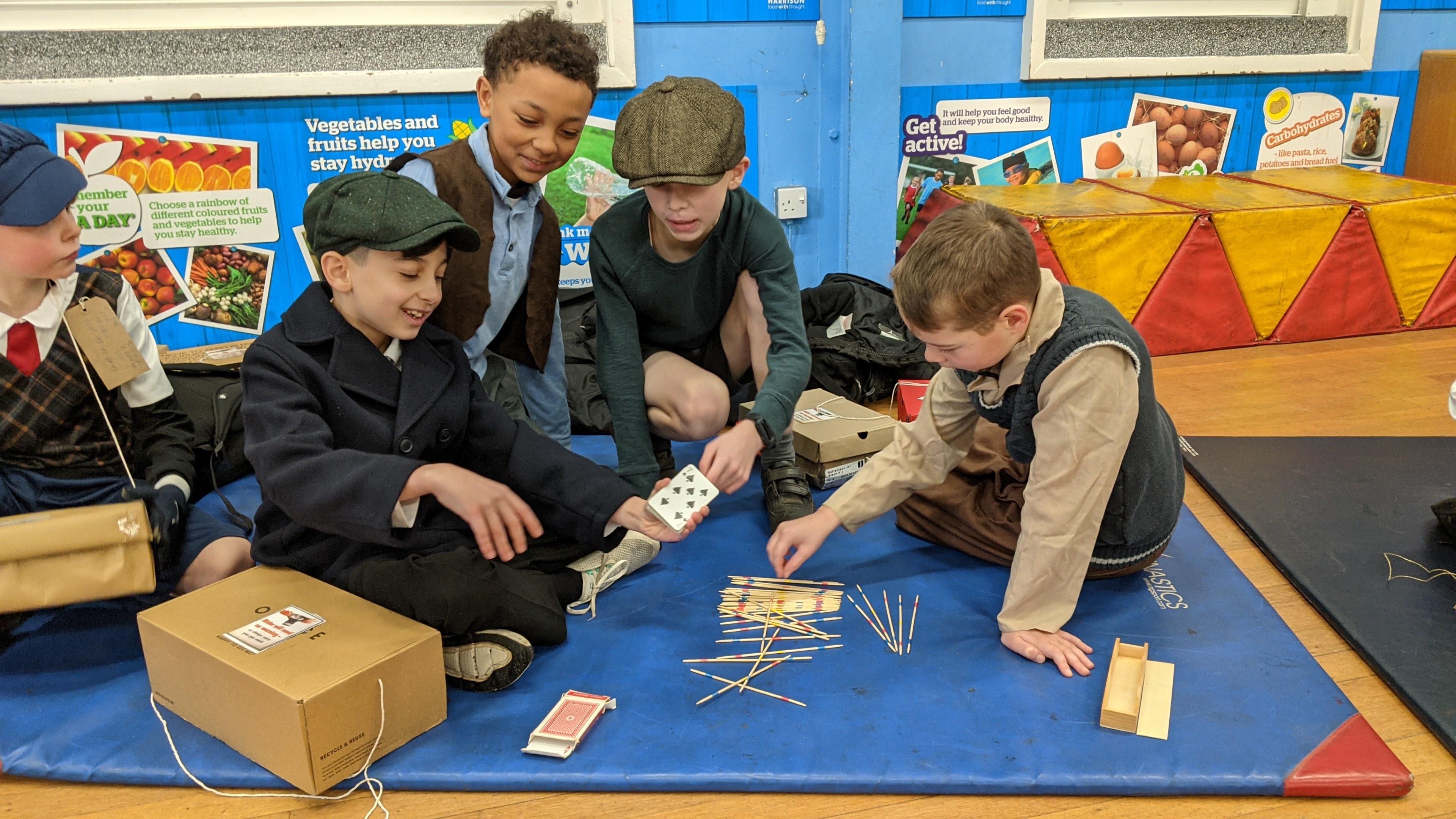
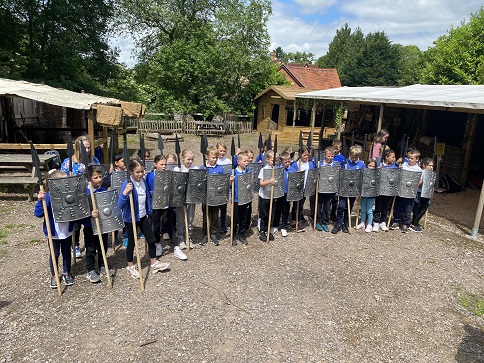
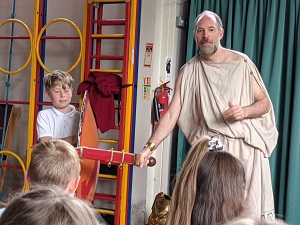
History
‘A people without the knowledge of their past history, origin and culture is like a tree without roots.’
Marcus Mosiah Garvey
Local Context:
Long Lane Primary is a Community School, built in 1966 and maintained by West Berkshire Council. It is situated in the Thames Valley in the Royal County of Berkshire. The village of Purley on Thames itself has been a settlement since Saxon times and has the River Thames passing through, the inspiration of Kenneth Graham’s creation The Wind in the Willows. The surrounding area, from Oxford to Windsor and on to London, provides links to historic places, people and events.
(Please see Curriculum Policy.docx for details of Cultural Capital at Long Lane)
Intent
At Long Lane we believe that a varied History curriculum provides a positive culture of learning and discovery that inspires children’s curiosity about the past through inspiring stories and texts, active learning and fact finding. We aim to provide an inclusive, engaging and progressive History curriculum so that all children can confidently develop their knowledge, skills and cultural capital as historians. Children will build a chronological awareness and understanding of local, British and world history and develop relevant knowledge and understanding of how the present has been influenced and shaped by past people, events and civilisations in both Britain and the wider world and their local community. We teach children key skills, such as questioning, analysing evidence, identifying similarities and differences, thinking critically, considering evidence and arguments in order to develop empathy, perspective and judgement.
Implementation
Early Years – History starts with an understanding of now and before and our youngest children learn this from the adults and routines around them. There are many opportunities for children to understand what has happened before and how things have changed and this centres on self and family. Children are provided with opportunities to touch, feel and experience past events and traditions with planned activities, visitors and trips.
Children begin to learn about the past and present in early years by discussing themselves and their families and looking at similarities and differences between the past and now. This continues into Key Stage 1, where children build upon their knowledge and understanding of the past and present. They learn about similarities and differences between ways of life in different periods and develop their understanding of chronology by learning about significant people, events and places.
Children continue to develop this knowledge through Key Stage 2 as they study the key historical concepts of chronology; significance; change and continuity; cause/consequence and interpretation, which are taught within the historical contexts outlined within the National Curriculum. Substantive concepts are taught, practised and applied through a range of activities.
History at Long Lane:
- Is taught through stories and some literacy lessons
- Having discussions around topics and topic specific vocabulary
- Making links between the past and present day
- Enriched through immersive opportunities such as trips and themed days
- Starts with a question to encourage investigation and curiosity
- Has cross-curricular links
(Please see Teaching for Learning Policy 2023.docx for details of Learning Behaviours, inclusion and Rosenshine Principles at Long Lane)
Impact
Our approach to History at Long Lane means that children:
- Develop a sense of chronology and understanding where people, significant places and events would be placed on a timeline
- Understand that time periods overlap
- Develop questioning skills so that questions are relevant
- Make links between the past and present
- Demonstrate knowledge and understanding of cause and consequence, similarities and differences, continuity and change
- Have experiences that add to their cultural capital
- Develop subject specific vocabulary
Pupil assessment and attainment
Teachers use Assessment for Learning strategies to ensure that children understand what they are being taught within a context and ‘know more and remember more’ of the key knowledge and skills outlined in each objective. These will include; mini quizzes, questioning, discussions and observations (including video and photography), peer assessment and appreciation, Think Pair Share, book looks and comparisons. Teacher assessment occurs throughout teaching and learning with support implemented where appropriate. (see Teaching for Learning Policy linked below)
EYFS pupils' progress and attainment is assessed by the FS class teacher in the context of the EYFS framework and ELGs.
Monitoring and School Improvement Planning
The History Lead, the Headteacher, with support from the Governors regularly review and quality assure History across the school to ensure that it is implemented sufficiently well in line with the National Curriculum Objectives and aligns with the Vision and Values of the school.
Impact is measured through monitoring activities, including; learning walks, questionnaires to staff, pupil voice, looking at evidence of pupil’s work, teacher’s assessments and any other relevant evidence. In addition, they evaluate the impact and plans for future development of the subject for pupils and staff, utilising action plans, looking to develop new opportunities, refine current practice, plan CPD for staff and feed into the School Improvement Plan (where appropriate) from where Performance Management and school priorities stem.
Linked Policies – This policy sits under the following two umbrella policies;
Teaching for Learning Policy 2023.docx
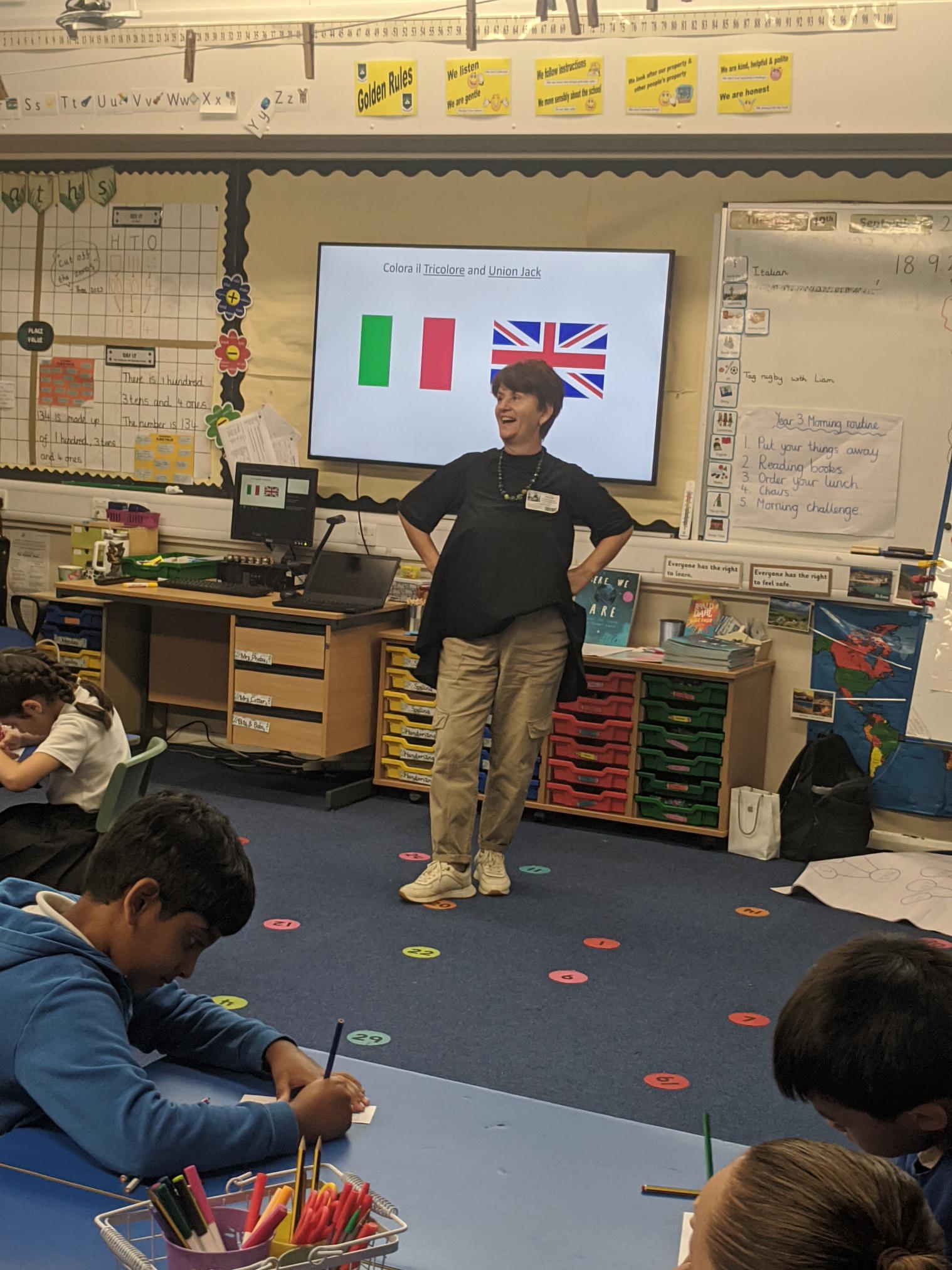

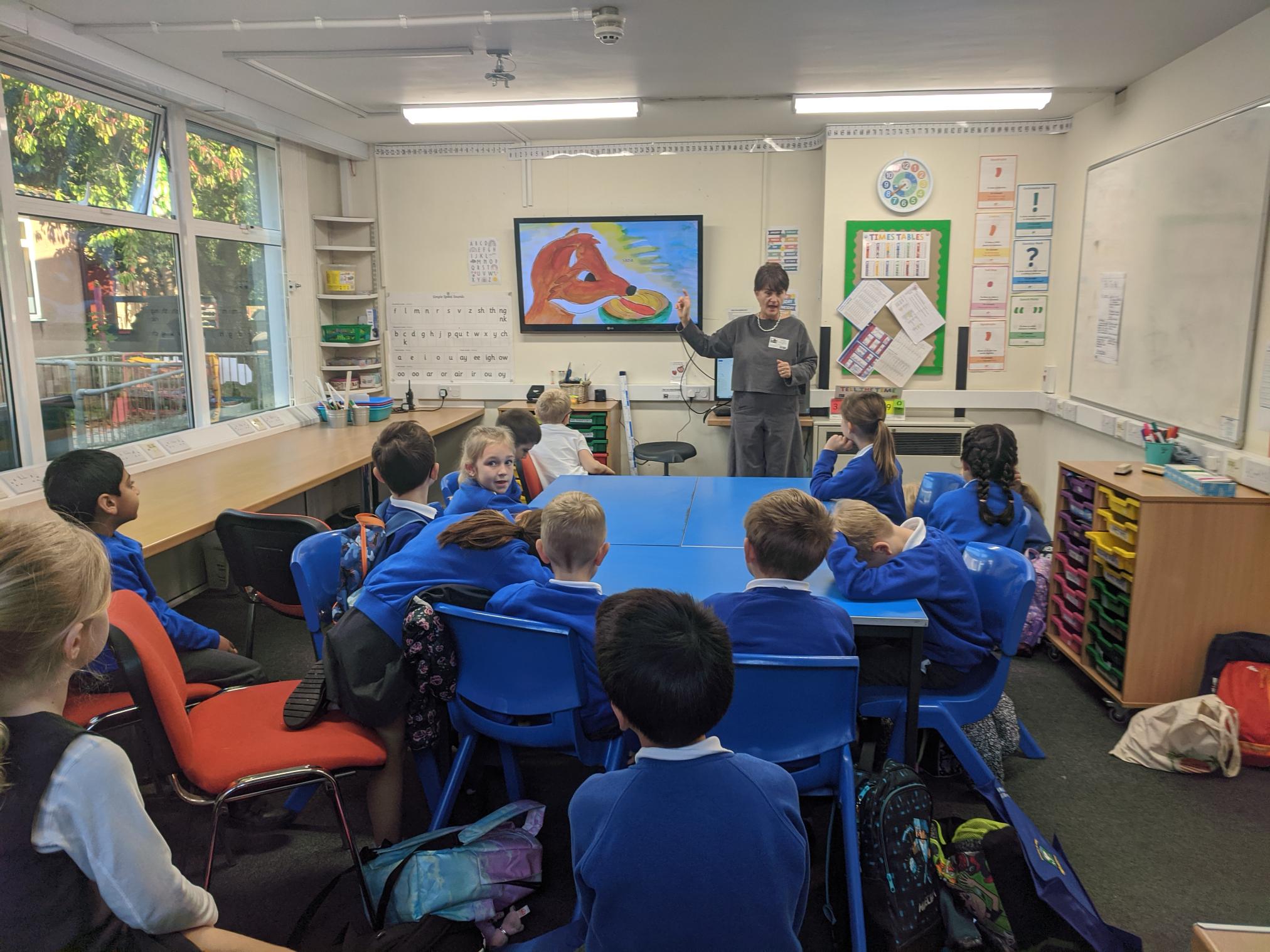
Modern Foreign Languages - Italian
‘To learn a language is to have one more window from which to look at the world.’
-Chinese Proverb
Local Context:
Long Lane Primary is a Community School, built in 1966 and maintained by West Berkshire Council. It is situated on the outskirts of Reading, in close proximity to the rural village of Purley on Thames. In Reading and surrounding areas there are a diverse number of languages spoken and communities that we engage with. We have an abundance of first languages spoken in our school and celebrate the diversity and community that learning a new language can bring. At Long Lane we understand that learning a foreign language can strengthen our literacy and communication skills (making us resilient learners) and will open up our relationships with our local community. As part of our cultural capital, our Italian teacher offers extra-curricular clubs on site every week for a variety of pupils across the school. Our children love learning Italian and are really engaged with this exciting new language and culture.
Intent
We believe at Long Lane Primary School that, in an ever-changing and diverse world, learning a foreign language, along with other cultural and social differences between ourselves and others, is a key element in teaching children to become good citizens and considerate and independent members of their wider community, both local and global. Within a diverse community such as ours, we seek to foster a positive multi-cultural environment for all children whilst encouraging their curiosity and understanding of the world.
Learning a language will not only prepare them for their secondary education (no matter the language), where they will continue developing on the foundations we help them to build, but also for their adult life where they will experience many different languages and cultures.
The national curriculum for languages aims to ensure that all pupils:
- understand and respond to spoken and written language from a variety of authentic sources
- speak with increasing confidence, fluency and spontaneity, finding ways of communicating what they want to say, including through discussion and asking questions, and continually improving the accuracy of their pronunciation and intonation
- can write at varying length, for different purposes and audiences, using the variety of grammatical structures that they have learnt
- discover and develop an appreciation of a range of writing in the language studied.
We believe that languages are best taught by native speakers and specialists of the subject and seek to supplement the Italian language as part of our culture through our staff being learners and speakers also.
(Please see Curriculum Policy.docx for details of Cultural Capital at Long Lane)
Implementation
At Long Lane we are fortunate enough to be able to take part in the Italian Consulate’s teaching scheme, which enables native Italian teachers to teach within the school in all year groups. This is a service that we share with some other West Berkshire Schools and have benefitted greatly from this specialist provision.
The pupils at Long Lane, learn Italian through discreet lessons and culturally through words and phrases in other contexts. Lessons start in Year 1 and continue through to Year 6 (a 1 hour lesson once per fortnight) using the Italian Consulate’s Education scheme of work. As this language has only been introduced in September 2023, it has been adapted to suit the children’s needs (all starting learning at the same time).
Year 1 (the early years) - Children start learning Italian through songs and games, using single words for family members, functional languages such as colours, items and nouns. To facilitate embedding this language, half of the session is set up within a continuous provision learning environment, where the Italian teacher will facilitate and model Italian language within their natural play.
In line with the National Curriculum expectations for MFL, our students are taught to:
- listen attentively to spoken language and show understanding by joining in and responding
- explore the patterns and sounds of language through songs and rhymes and link the spelling, sound and meaning of words
- engage in conversations; ask and answer questions; express opinions and respond to those of others; seek clarification and help
- speak in sentences, using familiar vocabulary, phrases and basic language structures
- develop accurate pronunciation and intonation so that others understand when they are reading aloud or using familiar words and phrases
- present ideas and information orally to a range of audiences
- read carefully and show understanding of words, phrases and simple writing
- appreciate stories, songs, poems and rhymes in the language
- broaden their vocabulary and develop their ability to understand new words that are introduced into familiar written material, including through using a dictionary
- write phrases from memory, and adapt these to create new sentences, to express ideas clearly
- describe people, places, things and actions orally and in writing
We recognise the importance of pupils developing a ‘Love of learning Italian’ and seek to support their understanding with active learning. Pupils have opportunities to learn in the following ways;
- Songs (or video) to recap on previous learning
- Introduction of new language
- Games to practice new language – bingo, pairs
- Active physical pathways and gestures to embed new language
- Responding to instruction to aid understanding of language
- A plenary to test new language
(Please see Teaching for Learning Policy 2023.docx for details of Learning Behaviours, inclusion and Rosenshine Principles at Long Lane)
Impact
At Long Lane Primary School, we measure the impact of our MFL curriculum through:
- Observing the children speaking and listening in another language
- Marking of written work
- Interviewing the pupils about their learning (pupil voice)
- Annual reporting of standards across the curriculum to parents
- Learning walks and observations
- Frequent communication throughout the year between the MFL subject leader, Italian teacher and Italian Consulate, including meetings to discuss what works well and what needs to change
- Regular revision of the teaching and assessment materials with the selection of new resources where others have been less effective for learning
Pupil assessment and attainment
Teachers use Assessment for Learning strategies to ensure that children understand what they are being taught within a context and ‘know more and remember more’ of the key knowledge and skills outlined in each objective. These will include; mini quizzes, questioning, discussions and observations (including video and photography), peer assessment and appreciation, Think Pair Share, book looks and comparisons. Teacher assessment occurs throughout teaching and learning with support implemented where appropriate. (see Teaching for Learning Policy linked below)
Monitoring and School Improvement Planning
The MFL Lead and the Headteacher, with support from the Governors, regularly review and quality assure MFL across the school to ensure that it is implemented sufficiently well in line with the National Curriculum Objectives and aligns with the Vision and Values of the school.
Impact is measured through monitoring activities, including; learning walks, questionnaires to staff, pupil voice, looking at evidence of pupil’s work, teacher’s assessments and any other relevant evidence. In addition, they evaluate the impact and plans for future development of the subject for pupils and staff, utilising action plans, looking to develop new opportunities, refine current practice, plan CPD for staff and feed into the School Improvement Plan (where appropriate) from where Performance Management and school priorities stem.
Linked Policies – This policy sits under the following two umbrella policies;
Teaching for Learning Policy 2023.docx
Computing
‘Computers are like bicycles for our minds.’
Steve Jobs
Local Context:
Long Lane Primary is a Community School, built in 1966 and maintained by West Berkshire Council. There are many opportunities to understand how computing is used in the local area and businesses near to the school provide support and networking that encourages our pupils to be part of the wider community through career links and taking part in competitions and learning. Our children are part of a digital society that influences opinions and fact finding and we believe that being responsible online is an increasing safeguarding factor. This means that we have taken steps to teach explicitly about online safety and how this affects mental health of self and others. We also understand the benefits of digital media and that children Long Lane need to be equipped with the proficient use of computers to support their learning across the curriculum.
Intent:
At Long Lane Primary School, our intent is to provide high-quality computing education that equips our pupils with the fundamental computational skills and knowledge necessary to thrive in an increasingly digital and changing world. We aim to foster a love of learning and curiosity about technology while ensuring that pupils develop the essential skills required to become responsible, competent, and confident users of technology. We equip pupils with the resilience necessary to both support (as upstanders) and be part of the positive aspects of the digital community they represent.
(Please see Curriculum Policy.docx for details of Cultural Capital at Long Lane)
Implementation:
Early Years- Pupils at Long Lane arrive at school with a knowledge of how to use computers and digital devices. However, they do not understand e-safety and this needs to be closely monitored. Opportunities are provided within these parameters for children to explore the digital world around them in short, supervised bursts.
We will implement the “Teach Computing” scheme to structure our computing curriculum, ensuring a progressive and comprehensive coverage of key concepts. The curriculum will cover three main strands: Computer Science, Information Technology, and Digital Literacy. We have adapted the scheme of work to ensure each class covers these three main strands to ensure progression across the school – this is achieved by covering three units each year.
- Computer Science: Children will develop computational thinking skills through coding and programming activities using platforms such as Scratch. Logical reasoning and problem-solving will be emphasised, encouraging students to think algorithmically.
- Information Technology: Children will learn to use a range of software applications for various purposes including word processing, graphic design, and multimedia creation. Online safety will be embedded throughout the curriculum to ensure responsible use of technology.
- Digital Literacy: Children will develop a critical understanding of the digital world, including online safety, privacy, and the impact of technology society.
Wider Curriculum - Computing skills will be integrated into other subjects (PSHE, English, Geography, Maths etc) to reinforce learning and demonstrate the practical and safe application of technology. We will provide access to a range of computing devices, ensuring that pupils have opportunities to work with different types of technology. Regular updates to software and hardware will be conducted to keep up to date with advancements.
Online safety - The safe and positive use of computers and information technology is embedded within our computing curriculum as well as other aspects such as Personal Social Health and Economic education (PSHE). This ensures that our children are aware of how to conduct themselves when using computers and information technology, including the internet, in a safe and responsible manner.
Early Years - In the Early Years, computing education will be integrated into play-based activities, emphasising hands-on experiences and exploration. Interactive tools and age-appropriate software will be used to introduce basic concepts such as cause and effect, sequencing, and early coding skills.
LLPS Computing - Curriculum Coverage.docx
LLPS Computing - Curriculum Content.docx
Teacher Guide KS1 Computing.pdf
Teacher Guide KS2 Computing.pdf
(Please see Teaching for Learning Policy 2023.docx for details of Learning Behaviours, inclusion and Rosenshine Principles at Long Lane)
Impact:
Regular assessments and feedback using the NCCE ‘I can’ statements for each area of computing will be used to monitor pupils’ progress and identify areas for improvement. We will track the achievement of key milestones in each strand of the computing curriculum. Pupils will become confident and enthusiastic users of technology, applying their skills across the curriculum. Children will be able to recognise the dangers that exist from the use of technology and understand how to access online systems safely. Enrichment activities and extracurricular clubs will be offered to further engage pupils in computing beyond the classroom.
Regular updates to reflect changes in technology and educational practices are made to this policy. Through our implementation of this policy, we strive to create a positive and impactful computing education for all pupils at Long Lane Primary School.
Pupil assessment and attainment
Teachers use Assessment for Learning strategies to ensure that children understand what they are being taught within a context and ‘know more and remember more’ of the key knowledge and skills outlined in each objective. These will include; mini quizzes, questioning, discussions and observations (including video and photography), peer assessment and appreciation, Think Pair Share, book looks and comparisons. Teacher assessment occurs throughout teaching and learning with support implemented where appropriate. (see Teaching for Learning Policy linked below)
EYFS pupils' progress and attainment is assessed by the FS class teacher in the context of the EYFS framework and ELGs.
Monitoring and School Improvement Planning
The Computing Lead, the Headteacher, with support from the Governors regularly review and quality assure Computing across the school to ensure that it is implemented sufficiently well in line with the National Curriculum Objectives and aligns with the Vision and Values of the school.
Impact is measured through monitoring activities, including; learning walks, questionnaires to staff, pupil voice, looking at evidence of pupil’s work, teacher’s assessments and any other relevant evidence. In addition, they evaluate the impact and plans for future development of the subject for pupils and staff, utilising action plans, looking to develop new opportunities, refine current practice, plan CPD for staff and feed into the School Improvement Plan (where appropriate) from where Performance Management and school priorities stem.
Linked Policies – This policy sits under the following two umbrella policies;
Teaching for Learning Policy 2023.docx
Dance
Dance, which also forms an important part of PE, allows the freedom of expression and an alternative way of communication, as well as providing an opportunity to learn about cultural traditions. The children also benefit from the opportunity to participate in extra curricular dance lessons.
Drama
Throughout the school from Foundation Stage to Year 6 oracy and role play forms an important part of learning allowing children to empathise with the feelings of others.
